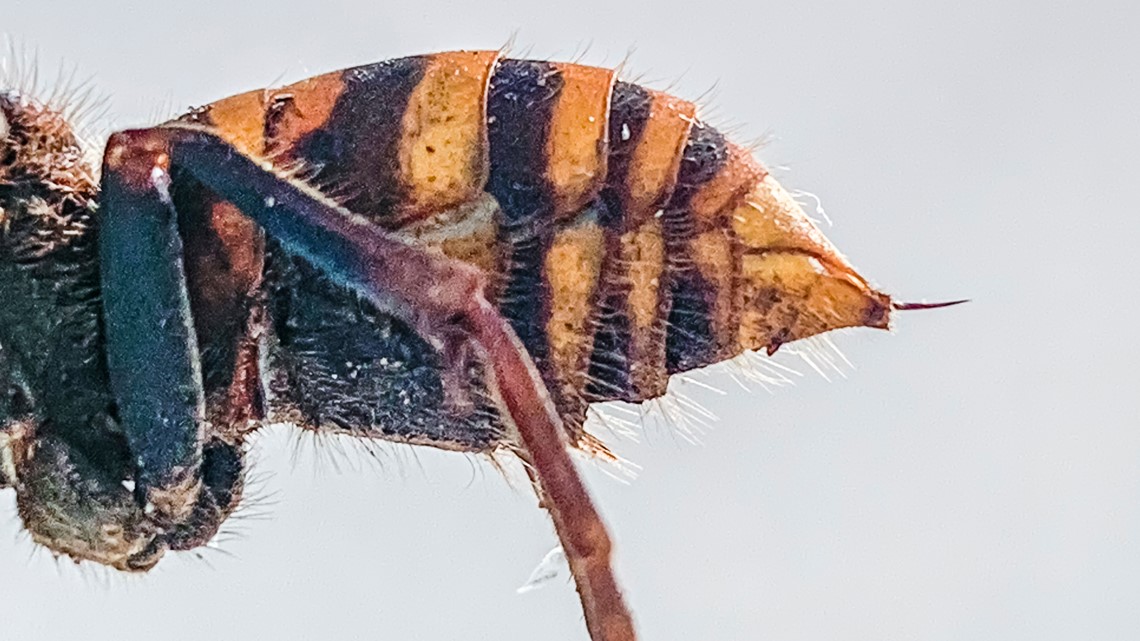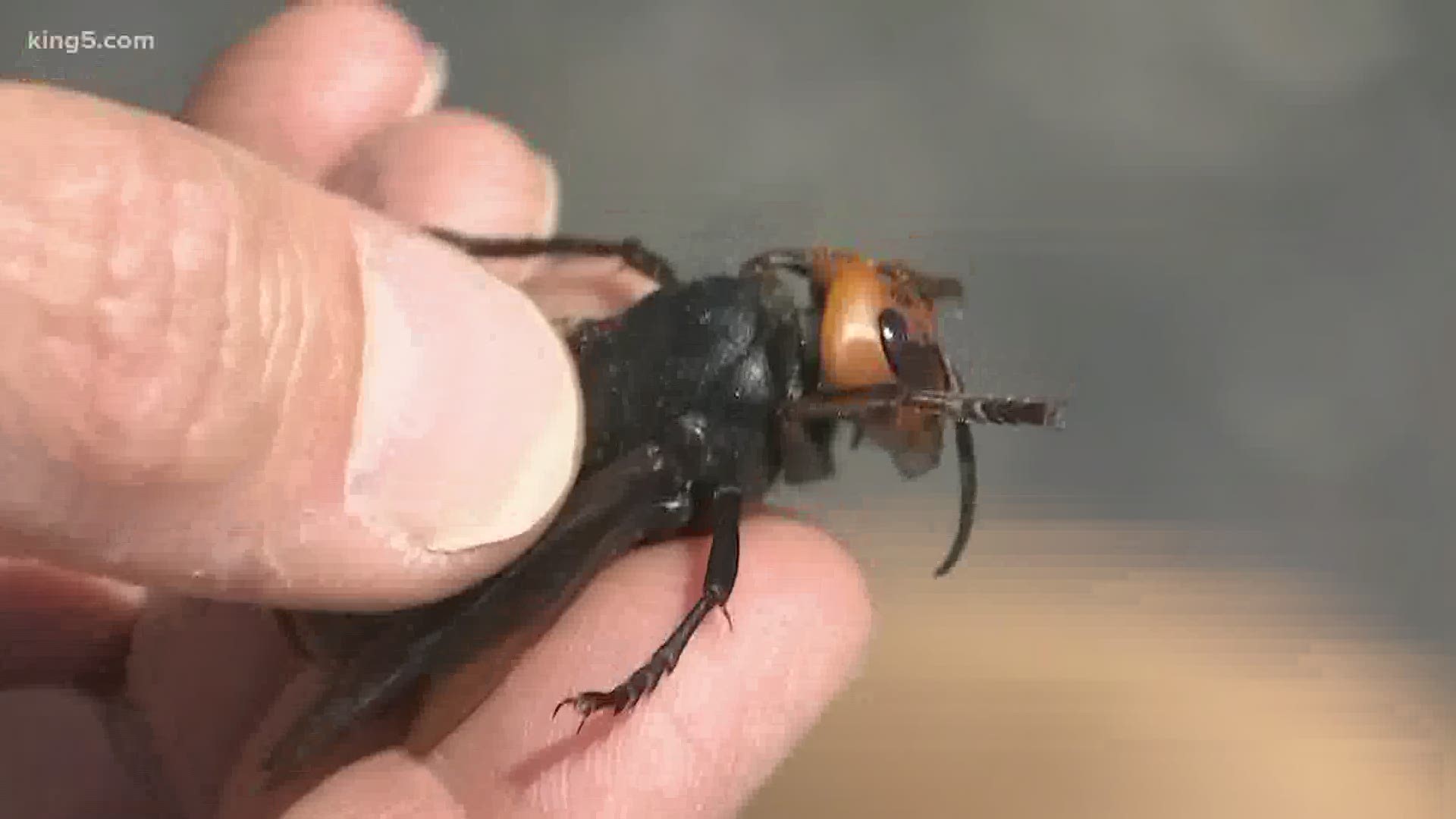BLAINE, Wash. — Asian giant hornets were discovered in Washington late last year, and on Thursday, the Washington State Department of Agriculture attempted to catch the insects.
Entomologist Dr. Chris Looney checked on experimental traps near Blaine. A total of six traps are set up in an effort to lure the Asian giant hornet, but none were found. However, it is an ongoing effort.
The Asian giant hornet is about two inches in length. Scientists say six of the massive insects can takeout 30,000 honeybees in an otherwise healthy hive.
A beekeeper in Whatcom County says in November, he discovered a strong colony decimated. He suspects the Asian giant hornet is to blame, but that has not been officially confirmed.
"In the worst case scenario in my mind, it could make some smaller beekeepers just give up because if you lose your hives over and over again it wears you out," said Dr. Looney.
This dangerous and invasive hornet can sting repeatedly, have potent venom, and has gained a nickname that not all scientists like, "murder hornets."
"The 'murder hornet' moniker has created a lot of fear and hysteria. It's probably overblown. I mean the human health risks are real. If you are one of the people who is unlucky enough to stumble into a nest and get stung that is definitely going to hurt. If you are allergic, you could go into shock. And every year, there are people in Japan that are hospitalized for multiple stings. Some even die," said Dr. Looney.


Bug experts are dismissing as media hype the recent worry about so-called murder hornets spotted in Washington state. They say despite its homicidal nickname and this week's headlines, the Asian giant hornet is not a big threat to people. The world's largest hornets could be a threat to honeybees if they get established in America. But they haven't yet.
No live hornets have been found in the U.S. and the only live nest seen in North America was wiped out last September. Bug experts across the country are getting calls from worried people thinking they saw one of these hornets, yet haven't.
At this point, there is no word on how the Asian giant hornets got here, but it is an invasive species that officials will continue to hunt for in our state.
"The immediate thing we think about is we have to locate populations, determine how big they are, and eradicate them. And as gruesome as that sounds, that’s our goal, to kill these off and keep them from establishing in Washington state," said Dr. Looney.

